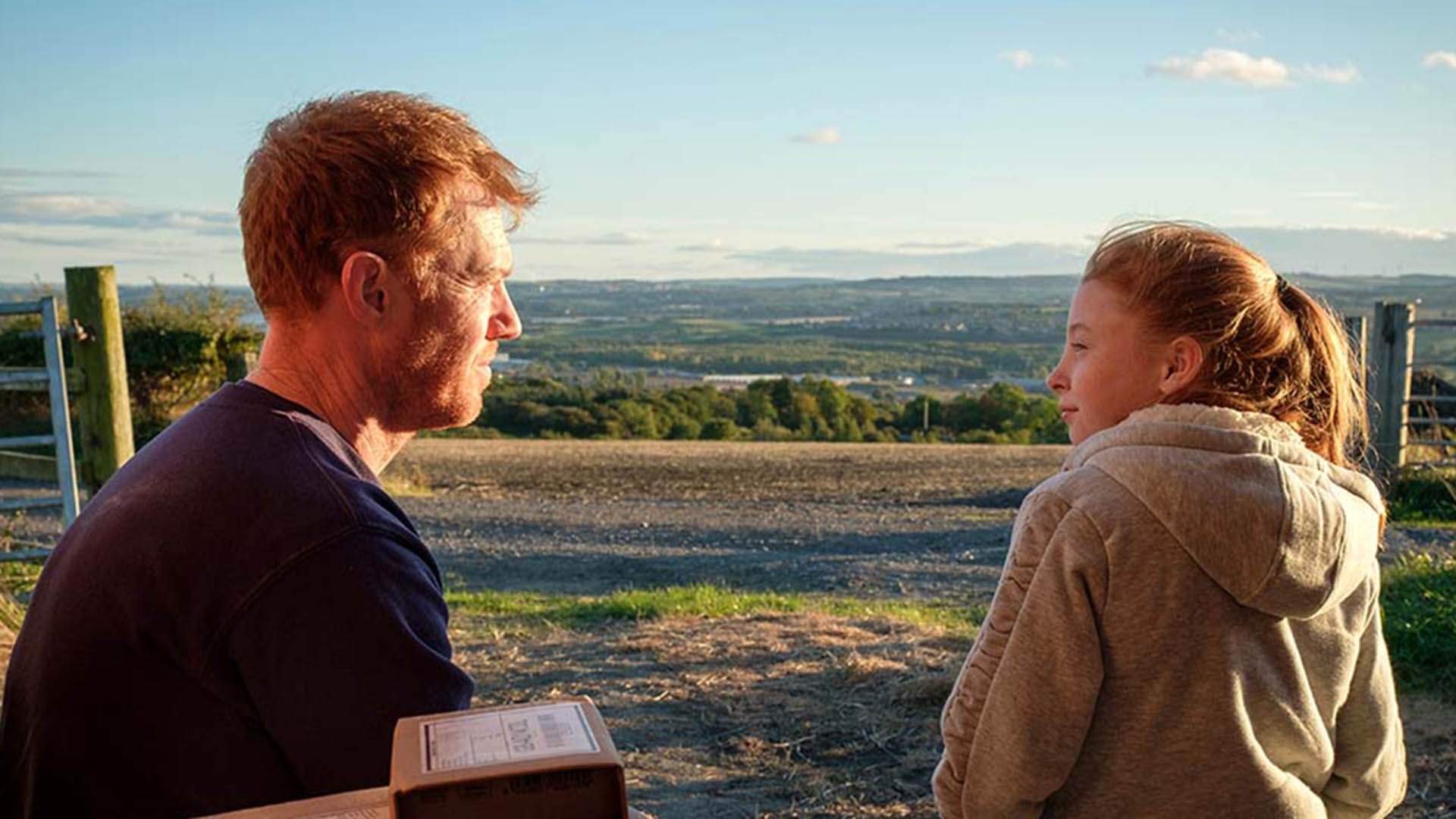Sorry We Missed You
Bleak and empathetic in equal measure, the latest impassioned film by British great Ken Loach explores the reality of the gig economy.
Overview
Printed on a piece of card and stuffed in many a letterbox, "sorry we missed you" ranks among the most frustrating phrases in the English language. If you're expecting a delivery, it means that you'll need to contact the courier company, book in another day and spend more time waiting, which is never convenient. But for those who dedicate their hours to transporting parcels around town, those four words can also indicate something far worse. To some employers, it can mean that they haven't done their job — and that has far-reaching consequences. Continuing his career-long examination of Britain's working class, Ken Loach's latest social-realist drama steps into this world, and into the punishing expectations that have become normalised in today's gig economy. Everyone has been annoyed about a delayed delivery, but the reality for overstretched couriers saddled with too many parcels, too little time, nowhere near enough pay and restrictive working conditions is much more bleak than simply having to wait an extra day for your latest online purchase.
Sorry We Missed You focuses on Ricky Turner (Kris Hitchen), who's new to the courier business; however it could've just as easily followed his path through plenty of other industries. Loach and his regular screenwriter Paul Laverty have chosen wisely, though, picking a field that everyone has had an experience with (even if only on the consumer side). Still, the same principles apply to many service-oriented professions these days — insecure work, no guaranteed hours, round-the-clock demands and an all-round arrangement that puts employers at an enormous advantage to the contractor's detriment. Ricky's wife Abbie (Debbie Honeywood), a nurse and in-home carer, also navigates a similar system. That we live in a world where meeting set targets and sticking to arbitrary timeframes is more important than giving proper medical care sounds like something out of a grim dystopian future, but Sorry We Missed You isn't exaggerating.
After losing not only his construction job in the 2008 financial crash, but his chance to buy a house, Ricky gets into courier work as a last resort. Debts are piling up, he wants security for his family's future and there are no other options. On paper, it seems ideal and even easy. Convincing Abbie to sell her car, he uses to money to purchase a van and starts contracting for a big company. Then, under hard-nosed manager Maloney (Ross Brewster), he discovers how the gig operates. He's soon working seven days a week, getting sanctioned when he can't meet KPIs and resorting to peeing in bottles because he doesn't have time for a toilet break. He's also vulnerable to robberies and financially responsible for the cargo he's delivering. And taking any time off — when he's injured, when the equally overworked and exhausted Abbie needs help, and when their adolescent son Seb (Rhys Stone) gets in trouble with the law — comes with severe monetary penalties. Some days, he even takes his pre-teen daughter Liza Jane (Katie Proctor) with him just so he can see her, although that's also frowned upon.
Across his more than 50 years behind the lens, Loach has always been drawn to these types of scenarios. His films are fictional, but they're steeped in actuality. That proved true in 1969's Kes, which relayed the story of a downtrodden Yorkshire boy's life-changing friendship with a kestrel, and just might be the finest British movie ever made. It was also true in I, Daniel Blake, his 2016 Palme d'Or-winning drama about government benefits that's a clear companion piece to Sorry We Missed You. That these tales keep needing to be told is heartbreaking and infuriating, of course — but there's no one better at it than Loach. He's an empathetic and humane filmmaker determined to give a voice to ordinary folks, to tackle everyday issues and to show life as it really is. He's also just as passionate about calling out vast societal inequities that, as seen in the Turners' experiences, exploit the masses for corporate gain.
As is his trademark, Loach brings all of the above to the screen with a keenly naturalistic eye and a largely non-professional cast, shooting his characters and their lives as though he's recording reality. There's no one better than cinematographer Robbie Ryan to help — the man who not only achieved the same feat on I, Daniel Blake, but on Andrea Arnold's American Honey and Noah Baumbach's Marriage Story as well. Under the duo's combined gaze, Sorry We Missed You's images speak a thousand frustrating words, and draw audiences into the film's despairing situation. The feature stares daggers at a system the world has simply accepted, too, and forces audiences to see how it affects average people. And, while the movie's message isn't subtle, this is still a nuanced and astute picture that's exactly as stirring and galvanising at it needs to be.





